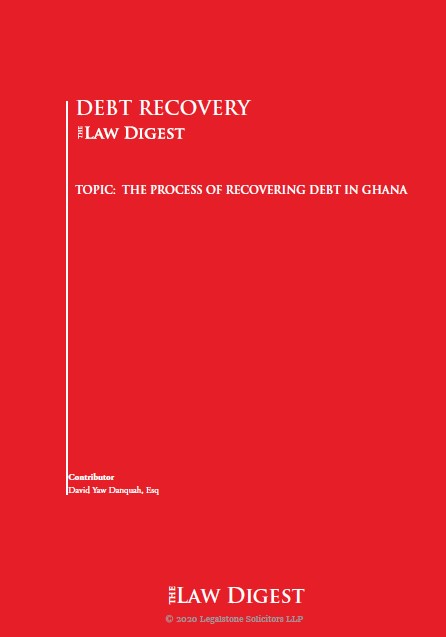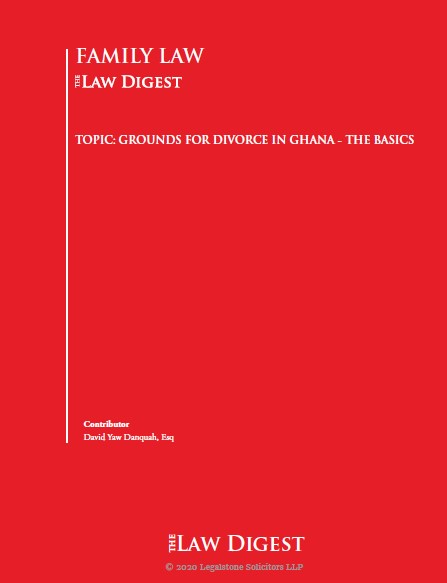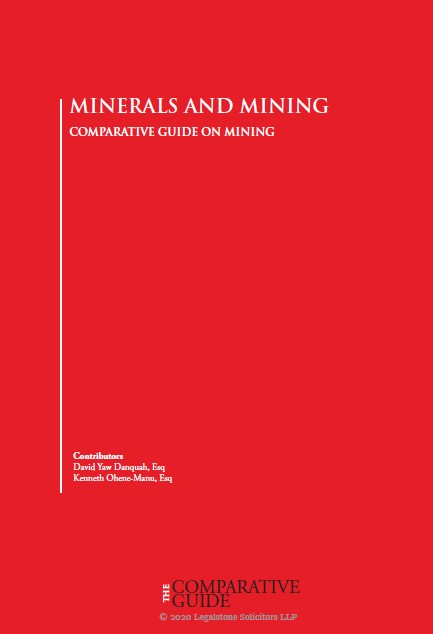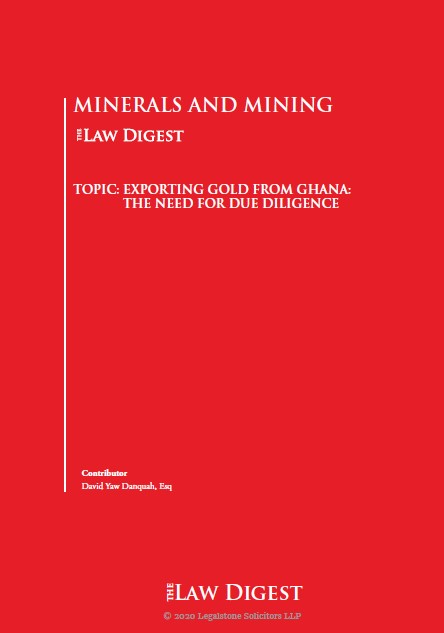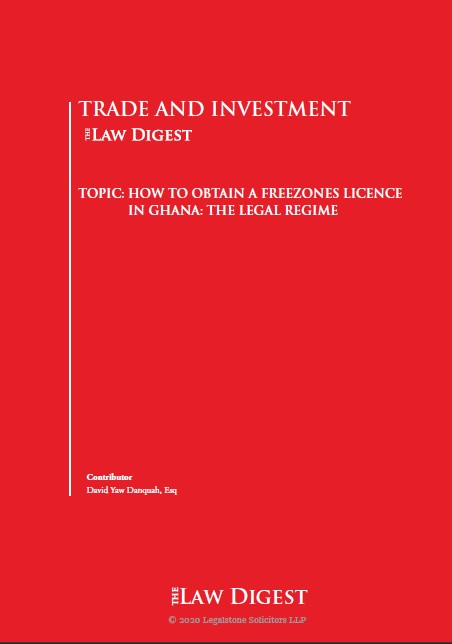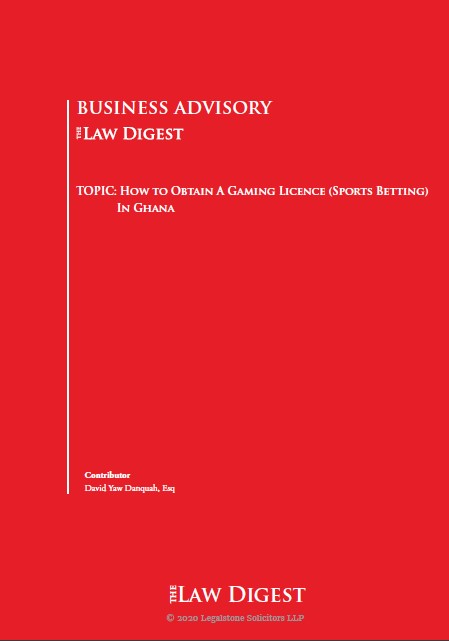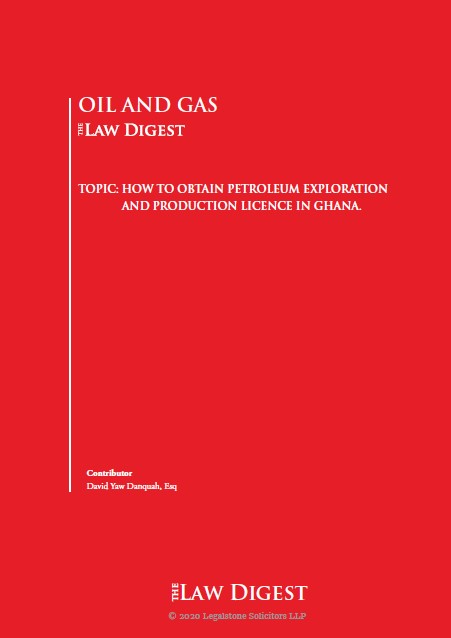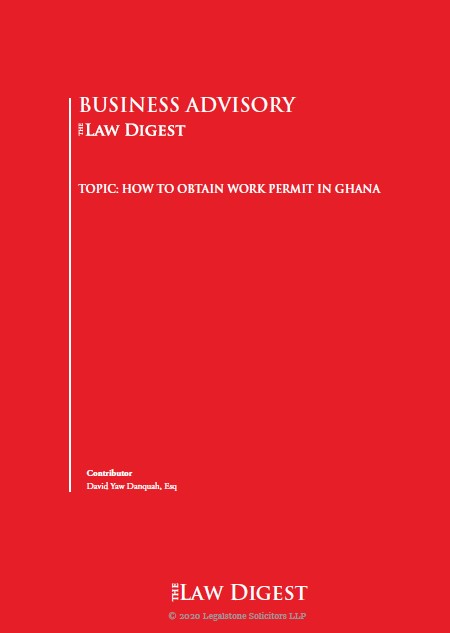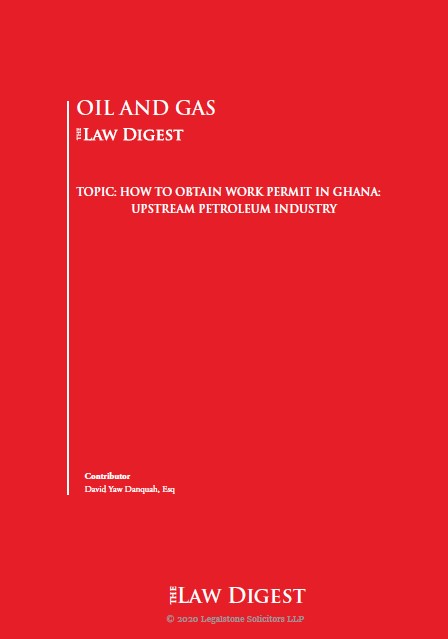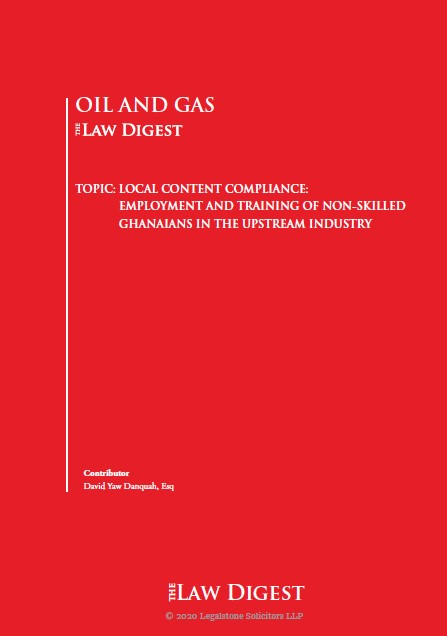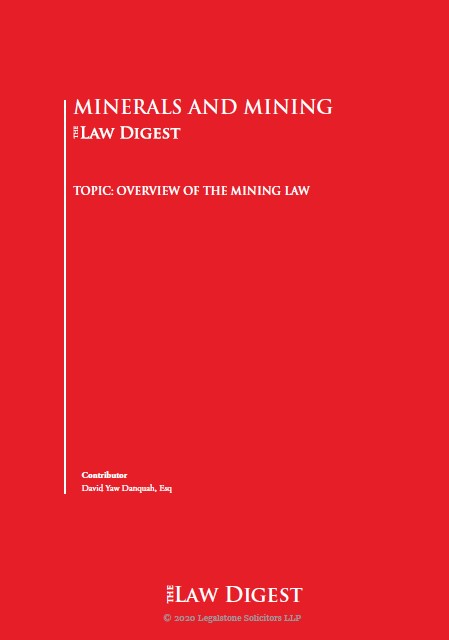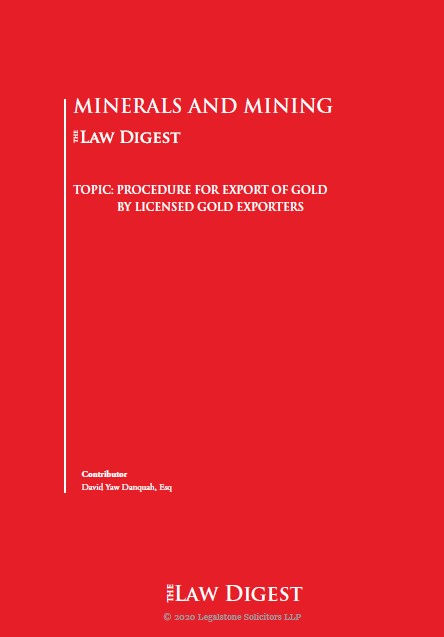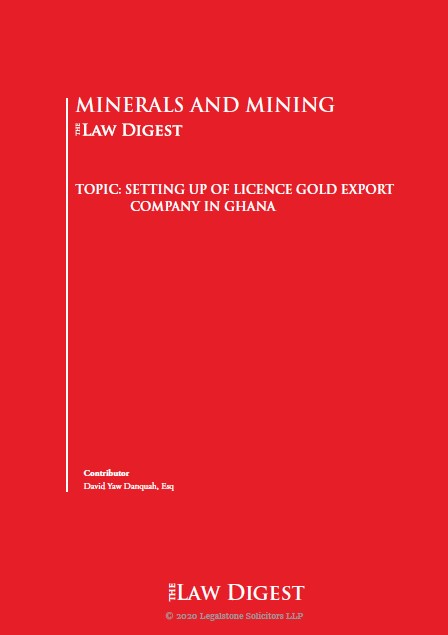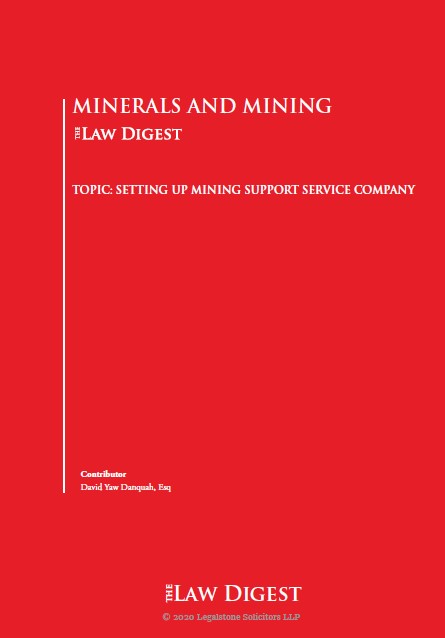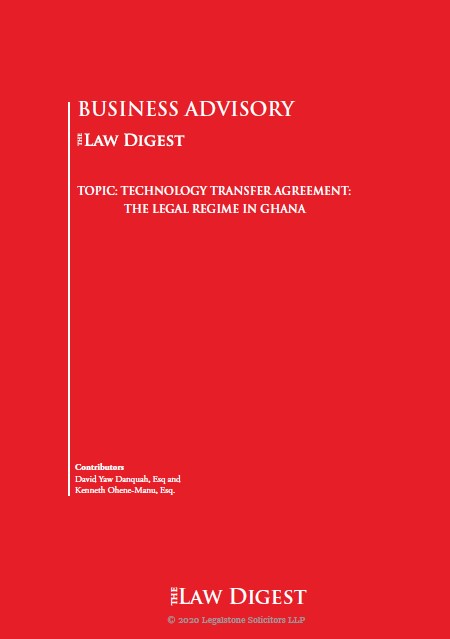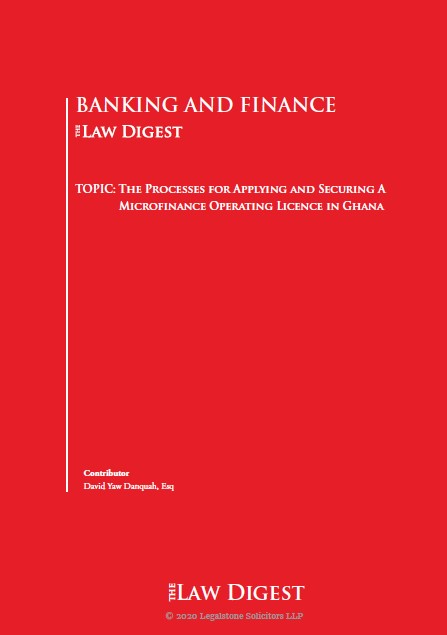
Introduction
Local Content is an obligation recognized in any exploration and production contract (such as concession agreement, petroleum agreement) or by law or regulation and enjoining companies to procure a minimum percentage of goods, equipment, and services from local suppliers.
The object behind Ghana’s local content requirement is to ensure the involvement of Ghana’s industry, including its national oil company (i.e., Ghana National Petroleum Corporation), in the development of the exploration, production, and decommissioning value and supply chain.
One of the most significant vital objectives sought to be actualized under the local content platform is the maximization of the benefits of oil and gas industry wealth generation on a comprehensive local content platform by maximizing the use of
- local expertise,
- goods and services,
- job creation for the people, businesses and
- financing in all aspects of the oil and gas industry value chain and the retention of the benefit within Ghana.
Regulatory Authorities
The Petroleum Commission
The Petroleum Commission, created by Petroleum Commission Act, 2011 (Act 821), was established to oversee activities in the country’s petroleum industry. Its functions extend to promoting local content and local participation in petroleum activities as prescribed in the Petroleum Exploration and Production Act 1984 (P.N.D.C. Law 84) and other applicable laws and regulations to strengthen national development.
In exercise of powers conferred on the Minister of Energy by Act 821, Ghana’s Local Content and Local Participation Regulations were made. The Regulation, which came into force on the 20th day of November 2013, is known as Petroleum (Local Content and Local Participation) Regulations, 2013 L.I 2204. Despite establishing the Local Content Committee, the Commission still retained its duty of promoting local content and local participation in the petroleum activities and shared the responsibility of implementing the provisions of the Regulations with the Local Content Committee.
Local Content Committee
The Local Content Committee was established by Regulation 5 of L.I 2204 and is saddled with the duty of overseeing the implementation of the Regulations. The responsibilities of the Committee extend to:
- Overseeing, coordinating and managing the development of local content;
- Preparing guidelines to include targets and formats for local content plans and reporting;
- Making appropriate recommendations to the Commission for smooth implementation of the Regulations;
- Setting minimum standard requirements for local content in local content plans where applicable;
- Undertaking public education;
- Conducting local content monitoring and audit; and
- Performing other functions conferred on the Committee by the Commission per the provisions of applicable laws.
The Committee is further required to submit quarterly reports of its activities to the Commission.
Local Content Defined
Regulation 49 of L.I 2204 defines Local Content as: –
“the quantum or percentage of locally produced materials, personnel, financing, good and services rendered in the petroleum industry value chain and which can be measured in monetary terms.”
Ghana’s Local Content laws have been perceived as a barrier for foreign investors, international oil and gas operators, and global oil services companies seeking to do business in Ghana. However, the Local Content policies were not created to be inflexible protectionist barriers that discourage competitiveness.
Instead, they are meant to stimulate growth in the upstream industry and ensure that Ghanaian citizens profit from abundant oil and gas resources.
Employment and Training of Ghanaian Citizens
The petroleum laws of Ghana require petroleum players in the industry, be it Contractors, Sub-contractors, Licensees, and other allied entities engaged in petroleum activities to as far as possible offer employment opportunities to Ghanaians with the requisite skills, expertise, and experience.
Regulation 17 of L.I 2204 provides a comprehensive approach to opening up employment opportunities to Ghanaians with the requisite skills and expertise by the industry players.
More importantly, Section 60 (1) of Ghana’s Petroleum (Exploration and Production) Act, 2016 Act 919 provides in clear and unequivocal words that, a Licensee, Contractor, Sub-contractor or the Corporation shall ensure that Ghanaian citizens who have the requisite expertise or qualifications in various levels of activities are employed under applicable enactments, the terms, and conditions of the license, petroleum agreement or petroleum sub-contract.
Section 60 (2) of Act 919 further states that a person carrying on petroleum activities shall be required to employ Ghanaian citizens in categories and functions as prescribed.
Regulation 19 of L.I 2204 even makes it more compelling by requiring upstream petroleum industry players to employ Ghanaians in junior or middle-level positions.
For a definition, Regulation 19 (2) of L.I 2204 defines junior or middle-level positions to include the position of foreman, supervisor, or any corresponding position designated as such.
It is therefore imperative for industry players to note that, when it comes to junior or middle-level positions in Ghana’s petroleum upstream industry, only Ghanaians are required to be engaged and or employed by the industry players.
Situations where Ghanaians Lack the Required Skills and Expertise Needed for a Position (a Position other than Junior or Middle-level Position).
Regulation 18 of L.I 2204 enjoins a contractor, subcontractor, licensee or other allied entity engaged in the upstream petroleum industry to as part of its employment and training sub-plan to submit to the Commission a succession plan for any employment position occupied by a non-Ghanaian to ensure that the minimum local content level required by L.I 2204 is met. The succession plan shall make provision for and require Ghanaians to understudy the requirements of the position held by a non-Ghanaian for a period determined by the Commission on a case-by-case basis, after which the Ghanaian shall assume the position occupied by the non-Ghanaian.
More importantly, in situations where Ghanaians are not capable of being employed because of lack of expertise and or skills, Regulation 17 (5) of L.I 2204 provides for what steps ought to be taken in such circumstances. It provides as follows; “where Ghanaians are not employed because of lack of expertise, the Contractor, Sub-contractor, Licensee or other allied entity shall ensure to the satisfaction of the Commission that every reasonable effort is made to provide training to Ghanaians in that field locally or elsewhere’.
It is relevant for players in the industry to note that, the provisions stated above gives the Commission so much powers, more so, the parameters within which the succession plan shall be implemented is not set out in L.I 2204. Therefore, it is likely that its application in cases of breach could lead to absurdity and stifle the operations of industry players.
More so, Section 60 (4) of Act 919 provides as follows; “a person carrying out petroleum activities shall in consultation with the Commission prepare and implement plans and programs to train citizens in all aspects of petroleum activities in accordance with the Regulations and the terms of the license petroleum agreement or petroleum sub-contract.”
It is worth noting that every plan prepared and activated by an industry player in the upstream oil and gas industry to train Ghanaian citizens shall be with the consultation of the Commission.
One will, therefore, be right to conclude that, to bring about certainty for the training and to pass on of expertise to Ghanaians in situations where they lack, there is the need for the Commission pursuance to its powers under Act 919 and L.I 2204 to make uniform guidelines and procedures for the training of Ghanaians. The latter lacks the required skills and expertise for certain positions.
The Commission is empowered under Regulation 43 (1) of L.I 2204 to establish and continuously review the guidelines and procedures for the effective implementation of L.I 2204. Regulation 43 (2) of L.I 2204 provides the limits for compliance by the industry players for the issued guidelines comprehensively.
Reproduced below is Regulation 43 (2) of L.I 2204,
“Without limiting Subregulation (1), the Commission shall, in consultation with relevant institutions, issue guidelines for compliance by a contractor, subcontractor, licensee, and other allied entity in respect of the following:
(a) requirements and targets for the growth of research and development of the petroleum industry of the country;
(b) minimum standards, facilities, personnel and technology for training in the petroleum industry of the country;
(c) investment in or setting up a facility, factory, production unit or other operation in the country to carry out any production or manufacturing or to provide any petroleum-related service specified in Part Two of the First Schedule otherwise imported into the country; and
(d) generally, for the implementation of these Regulations.”
Regulation 44 of L.I 2204 further empowers the Commission to ensure compliance through effective monitory of every guideline issued pursuance to its rights reserved under Regulation 43 (1) of L.I 2204. Regulation 44 provides that the Commission shall monitor and investigate the activities of each contractor, subcontractor, licensee, and other allied entity to ensure the achievement of the purpose of these Regulations within the framework of the national policy on local content.
Based on the strength of the provisions listed above, the Commission has issued guidelines for employment training and succession plan in the upstream petroleum industry in Ghana. This uniform rule issued is expected to bring about certainty in the employment and training of Ghanaians and succession plans for expatriate positions in the upstream petroleum industry.
The document titled “Guidelines on Employment and Training of Ghanaians, and Succession Plans for Expatriate Positions in the Upstream Petroleum Industry– No. LC002/03, 2018” which came into effect on the 2nd day of June 2018, is reproduced without modifications seriatim.
“Further to its mandate as provided at Section 60(4) of the Petroleum (Exploration and Production) Act, 2016 (Act 919) and Regulations 17(5), 19(2), 43(1) and 44 of the Petroleum (Local Content & Local Participation) Regulations, 2013 (L.I. 2204), these guidelines are hereby adopted.”
A contractor, subcontractor, licensee or other allied entity engaged in petroleum activities shall:
- To all extents possible, give employment opportunities to Ghanaians with the requisite expertise, skills, and experience.
- Employ only Ghanaians in junior level or middle-level positions, which positions include the positions of Foreman, Supervisor, or any corresponding position designated as such.
- Submit each vacant position with a job description, qualifications, and certification requirements of the position to the Petroleum Commission (Commission) at least three (3) clear months before the intended start date of the recruitment process.
- Search for qualified Ghanaians through advertisements run for a minimum of one (1) week period in at least two (2) national newspapers with nationwide circulation. For the avoidance of doubt, online and any other media of advertisement are optional.
- Notify the Commission of each interview it seeks to conduct, and the Commission may determine where it deems necessary to sit in the recruitment interview(s), as an observer(s).
- Where a technically competent and experienced Ghanaian is not found through the prescribed advertisement, submit the search results with photocopies of the ad plus C.V.s and interview transcripts of Ghanaian applicants to the Commission for review. After the review, the Commission shall communicate to the company if it qualifies to apply for a work permit(s) for an expatriate worker for a particular role.
- Submit each application for employment/engagement of a non-Ghanaian citizen to work in the upstream petroleum sector in Ghana in writing to the Petroleum Commission at least three (3) months before the assumption of duty of the non-Ghanaian citizen.
- Apply to the Commission for a waiver of the three (3) months notification requirement specified in Guideline 7 above, where there is an emergency or any other justifiable need. The Commission shall consider the application on its merit and make an appropriate decision based on national and business interests.
Each request to employ/engage a non-Ghanaian citizen shall state:
- The name of the company seeking to employ/engage the non-Ghanaian citizen;
- The project/program the non-Ghanaian citizen is to work on.
- The specific role the non-Ghanaian citizen sought to be employed/engaged is to take up.
- The specific qualification required for the role of the non-Ghanaian citizen is to take up.
- The number of years of experience required for the role of the non-Ghanaian citizen is to take up.
- The duration of the employment/engagement.
- Whether the position in respect of which the application to employ/engage a non-Ghanaian citizen is a junior, middle-level position, management, senior management, executive or advisory/consultant position.
- Why a Ghanaian is not qualified to be employed/engaged to assume that role.
- Where approval is granted by the Commission to apply for a work permit for an expatriate, engage a Ghanaian successor(s) with the similar professional background to be trained and coached by the hired expatriate until such time (localization period) the Ghanaian successor becomes capable of taking over from the expatriate. The localization period for individual applications shall be on a case-by-case basis. It shall be reviewed by both the applicant company and the Commission to agree on the specific time frame for localization.
- Communicate the bona fides, the date of arrival, and commencement of duty of an employed/engaged expatriate to the Commission.
- Before the date of commencement of duty by the expatriate as specified in Guideline 7 above, engage a Ghanaian successor(s) and ensure to the satisfaction of the Commission that best efforts are used to provide the appropriate training to the Ghanaians successor(s) in the relevant field(s) locally or abroad.
- Submit Succession Plan(s), including the training program (s) for the duration of the contract period, to ensure that the minimum local content levels specified in the First Schedule 1 of L.I. 2204 are met. It must be noted that with regards to succession, the focus is placed on the position and not the expatriate. The Succession Plan for a particular role must state clearly:
i. The name(s) of a Ghanaian citizen(s) who is being trained by the applicant company to take up that role in Ghana and where he/she is being trained;
ii. The duration of the training program which shall include the start and end date;
iii. The certification and qualification to be obtained by the Ghanaian on successful completion of the training program;
iv. The anticipated time the Ghanaian successor is to take over from the expatriate;
13. Allocate a dedicated Training Budget for the implementation of the Succession Plan and the training program, as referred to in Guideline 12 above.
14. Upon the submission of the Succession Plan(s), submit quarterly appraisal reports signed by both the expatriate and the designated Ghanaian successor(s) to the Commission at the end of every quarter for review, approval, and monitoring and evaluation.
15. Request for approval in the case where there is a justifiable need to alter an agreed succession plan by the change of the Ghanaian successor(s) or extension of the localization period. Where the necessary approval is not sought, renewal of application may be refused.
16. Submit annual renewal of the work permit three (3) months before the expiration of the work permit based on the Commission’s assessment and satisfaction with their implementation of their Succession and Training Plans, as well as the proper utilization of the allocated Training Budget.
17. Under Section 60(4) of Act 919, prepare and submit to the Commission for its written approval, a training plan/program for Ghanaian citizens in its employment and qualified Ghanaian citizens who are not in its employment for an ensuing year by the 1st day of October each year.
18. The training plan/program referred to in Guideline 17 above shall state the following:
* The names of the Ghanaian citizens to benefit from the training plan/program;
* Whether the Ghanaian citizen(s) proposed for the training plan/program is in the employment of the company;
* If the Ghanaian citizen(s) selected is not in the employment of the company, a justification for the basis of selection, which may include educational qualification, gender, etc.
* If the Ghanaian citizen(s) selected is not in the employment of the company, whether the company shall employ him or her on completion of the training program;
* The duration of the training/program;
* The place and institution where the training program will take place;
*The competences expected to be gained from the training program;
* The cost of the training program per beneficiary;
19. Under Regulation 17(5) of L.I. 2204, where an applicant company fails to satisfy the Commission that every reasonable effort is being made to provide training to Ghanaians in the field in respect of which an approval is being sought for the employment/engagement of a non-Ghanaian citizen, the Commission may refuse the application.
20. Furnish the Commission with any further information it may consider necessary for the successful implementation of the L.I. 2204 and these guidelines”.
Conclusion
It is reasonably expected that these guidelines reproduced above shall ensure seamless processes and bring about the needed certainty when it comes to the training of Ghanaian citizens and the development of succession plans for expatriate positions in the upstream petroleum industry in Ghana.
Notes on contributor
Mr David Yaw Danquah is the founder and Managing Partner of Legalstone Solicitors LLP, a boutique law firm in Ghana with a concentration on Corporate and Commercial, Mining and Infrastructure, Debt Recovery and Restructuring, Real Estate and Construction Law, and Commercial Arbitration.
He heads the firm’s practice areas of focusing are Corporate and Commercial, Mining and Infrastructure, Debt Recovery and Restructuring, and Commercial Arbitration.
David has advised on numerous investment and mining-related transactions. He also has assisted countless international entities in establishing their operations in Ghana, and through his firms, offers support services to those entities. He has an impeccable record of providing technical savvy and exceptional client services.
David is a graduate of Kwame Nkrumah University of Science and Technology (KNUST), Kumasi, where he received his Bachelor’s Degree in Law (LL. B) and the Ghana School of Law, where he studied and received a Post Graduate Qualifying Certificate in Law (PQCL). He holds a Certificate in Negotiation Mastery from Harvard University. Presently, he is pursuing an LL.M Degree in International Dispute Resolution at the prestigious Queen Mary University of London, United Kingdom.
David is a member of the Ghana Bar Association, Association of International Petroleum Negotiators (AIPN) and Institute of Energy Law (IEL) based in Houston, U.S.
Legal Notice
The contents of this publication, current at the date of publication set out above, are for reference purposes only. They do not constitute legal advice and should not be relied upon as such. Specific legal advice about your particular circumstances should always be sought separately before taking any action based on this publication.
© Legalstone Solicitors LLP

